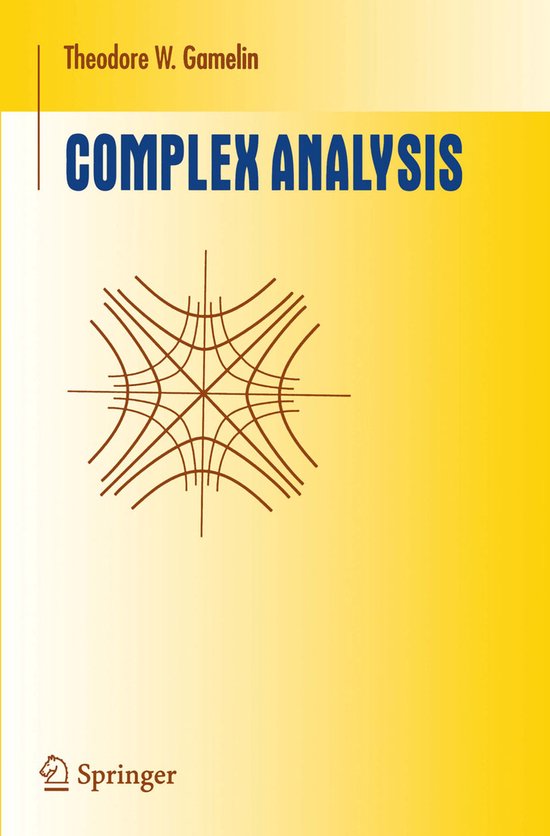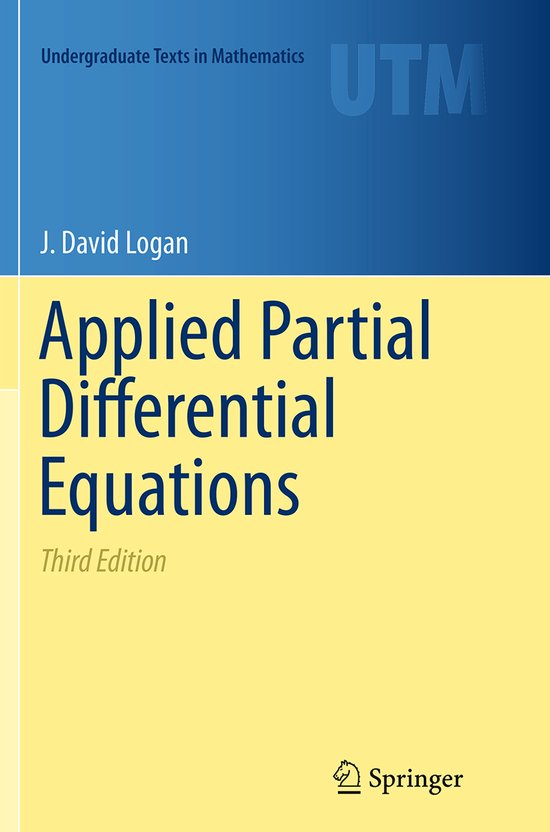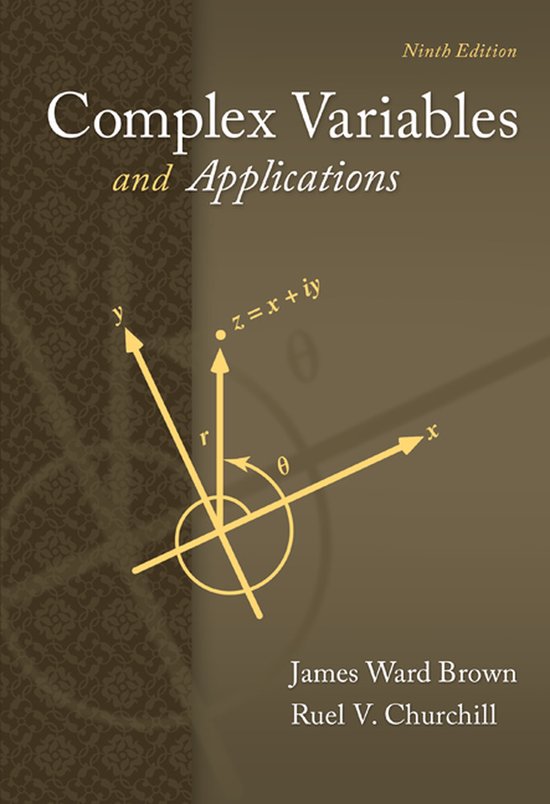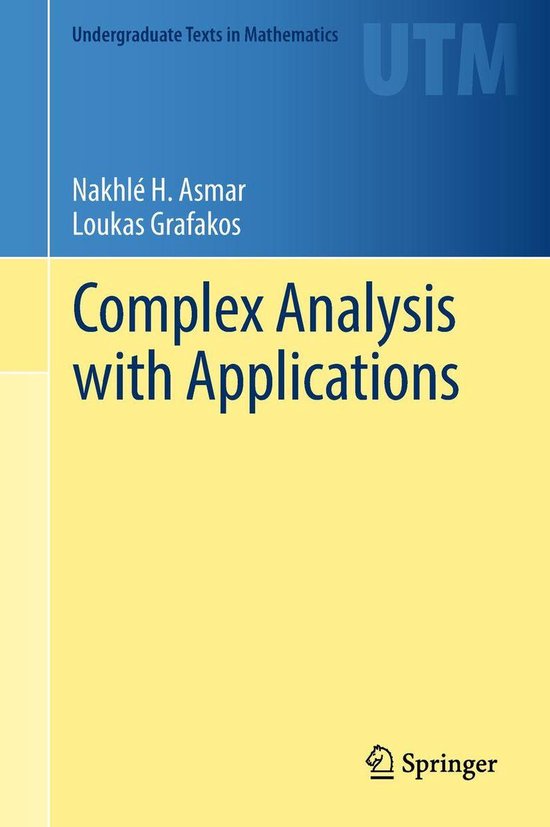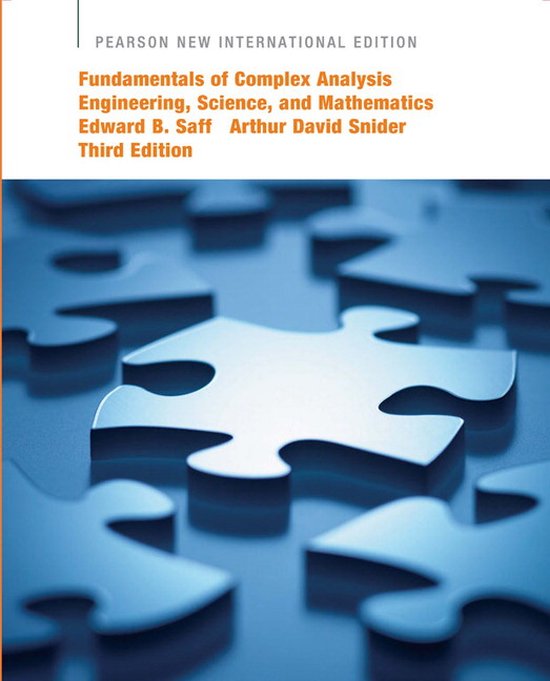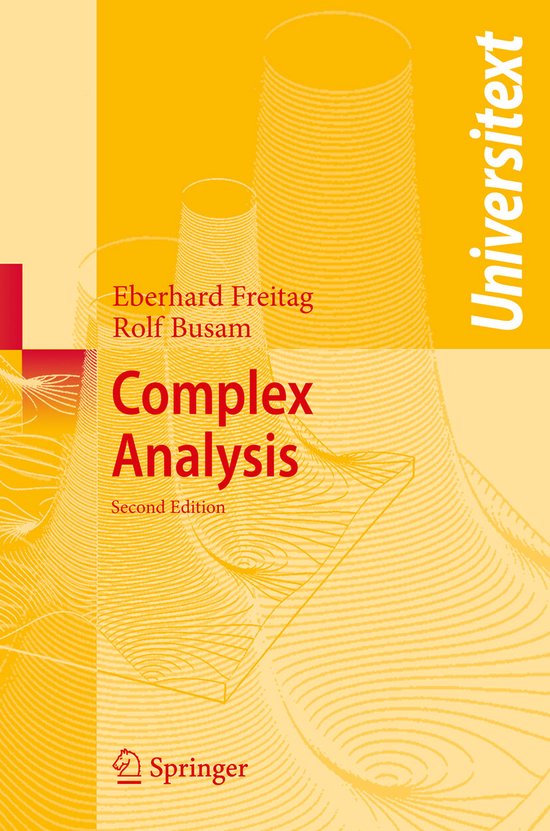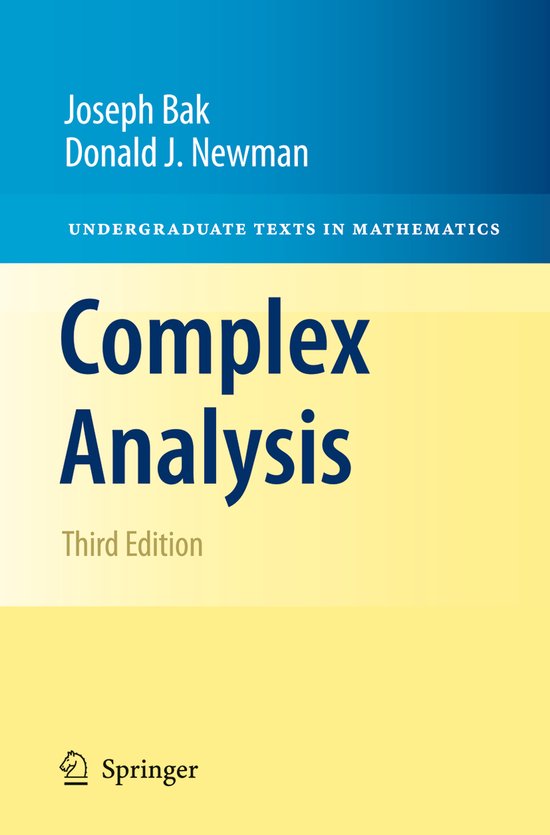
Complex Analysis
Beginning with the ?rst edition of Complex Analysis, we have attempted to present the classical and beautiful theory of complex variables in the clearest and most intuitive form possible.
This unusual and lively textbook offers a clear and intuitive approach to the classical and beautiful theory of complex variables. With very little dependence on advanced concepts from several-variable calculus and topology, the text focuses on the authentic complex-variable ideas and techniques. Notable additions to "Complex Analysis, Third Edition," include: • The solution of the cubic equation and Newton’s method for approximating the zeroes of any polynomial; • Expanded treatments of the Schwarz reflection principle and of the mapping properties of analytic functions on closed domains; • An introduction to Schwarz-Christoffel transformations and to Dirichlet series; • A streamlined proof of the prime number theorem, and more. Accessible to students at their early stages of mathematical study, this full first year course in complex analysis offers new and interesting motivations for classical results and introduces related topics stressing motivation and technique. Numerous illustrations, examples, and now 300 exercises, enrich the text. Students who master this textbook will emerge with an excellent grounding in complex analysis, and a solid understanding of its wide applicability.
Beginning with the ?rst edition of Complex Analysis, we have attempted to present the classical and beautiful theory of complex variables in the clearest and most intuitive form possible. The changes inthisedition, which include additions to ten of the nineteen chapters, are intended to provide the additional insights that can be obtainedby seeing a little more of the “bigpicture”.This includesadditional related results and occasional generalizations that place the results inaslightly broader context. The Fundamental Theorem of Algebra is enhanced by three related results. Section 1.3 offers a detailed look at the solution of the cubic equation and its role in the acceptance of complex numbers. While there is no formula for determining the rootsof a generalpolynomial,we added a section on Newton’sMethod,a numerical technique for approximating the zeroes of any polynomial. And the Gauss-Lucas Theorem provides an insight into the location of the zeroes of a polynomial and those of its derivative. Aseries of new results relate to the mapping properties of analytic functions. Arevised proof of Theorem 6.15 leads naturally to a discussion of the connection between critical points and saddle points in the complex plane. The proof of the SchwarzRe?ectionPrinciplehasbeenexpandedtoincludere?ectionacrossanalytic arcs, which plays a key role in a new section (14.3) on the mapping properties of analytic functions on closed domains. And our treatment of special mappings has been enhanced by the inclusion of Schwarz-Christoffel transformations.
This unusual and lively textbook offers a clear and intuitive approach to the classical and beautiful theory of complex variables. With very little dependence on advanced concepts from several-variable calculus and topology, the text focuses on the authentic complex-variable ideas and techniques. Notable additions to "Complex Analysis, Third Edition," include: • The solution of the cubic equation and Newton’s method for approximating the zeroes of any polynomial; • Expanded treatments of the Schwarz reflection principle and of the mapping properties of analytic functions on closed domains; • An introduction to Schwarz-Christoffel transformations and to Dirichlet series; • A streamlined proof of the prime number theorem, and more. Accessible to students at their early stages of mathematical study, this full first year course in complex analysis offers new and interesting motivations for classical results and introduces related topics stressing motivation and technique. Numerous illustrations, examples, and now 300 exercises, enrich the text. Students who master this textbook will emerge with an excellent grounding in complex analysis, and a solid understanding of its wide applicability.
Beginning with the ?rst edition of Complex Analysis, we have attempted to present the classical and beautiful theory of complex variables in the clearest and most intuitive form possible. The changes inthisedition, which include additions to ten of the nineteen chapters, are intended to provide the additional insights that can be obtainedby seeing a little more of the “bigpicture”.This includesadditional related results and occasional generalizations that place the results inaslightly broader context. The Fundamental Theorem of Algebra is enhanced by three related results. Section 1.3 offers a detailed look at the solution of the cubic equation and its role in the acceptance of complex numbers. While there is no formula for determining the rootsof a generalpolynomial,we added a section on Newton’sMethod,a numerical technique for approximating the zeroes of any polynomial. And the Gauss-Lucas Theorem provides an insight into the location of the zeroes of a polynomial and those of its derivative. Aseries of new results relate to the mapping properties of analytic functions. Arevised proof of Theorem 6.15 leads naturally to a discussion of the connection between critical points and saddle points in the complex plane. The proof of the SchwarzRe?ectionPrinciplehasbeenexpandedtoincludere?ectionacrossanalytic arcs, which plays a key role in a new section (14.3) on the mapping properties of analytic functions on closed domains. And our treatment of special mappings has been enhanced by the inclusion of Schwarz-Christoffel transformations.
| Auteur | | Joseph Bak |
| Taal | | Engels |
| Type | | Hardcover |
| Categorie | | Wetenschap & Natuur |
